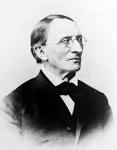| Date | Text | |
|---|---|---|
29 Dec 1816

Carl Friedrich Wilhelm Ludwig |
birth Carl Friedrich Wilhelm Ludwig Born 29 Dec 1816; died 23 Apr 1895 at age 78. German physiologist and biochemist who was one of the creators of modern physiology. He applied the experimental approach of chemistry and physics to explain the way the body functions. Ludwig investigated the structure of the kidneys and cardiac activity. The kymograph he invented (1847) continuously recorded blood pressure on a rotating drum. He explained blood circulation in terms of conventional forces, repudiating any mysterious "vital force." With his mercurial blood-gas pump (1859) he extracted gases from blood for study. In 1856, he was the first to keep an organ alive after removal from an animal (a frog heart), using perfusion (pumping blood plasma through them.) He was also first to study the nitrogen content of urine as a measure of protein metabolism. |